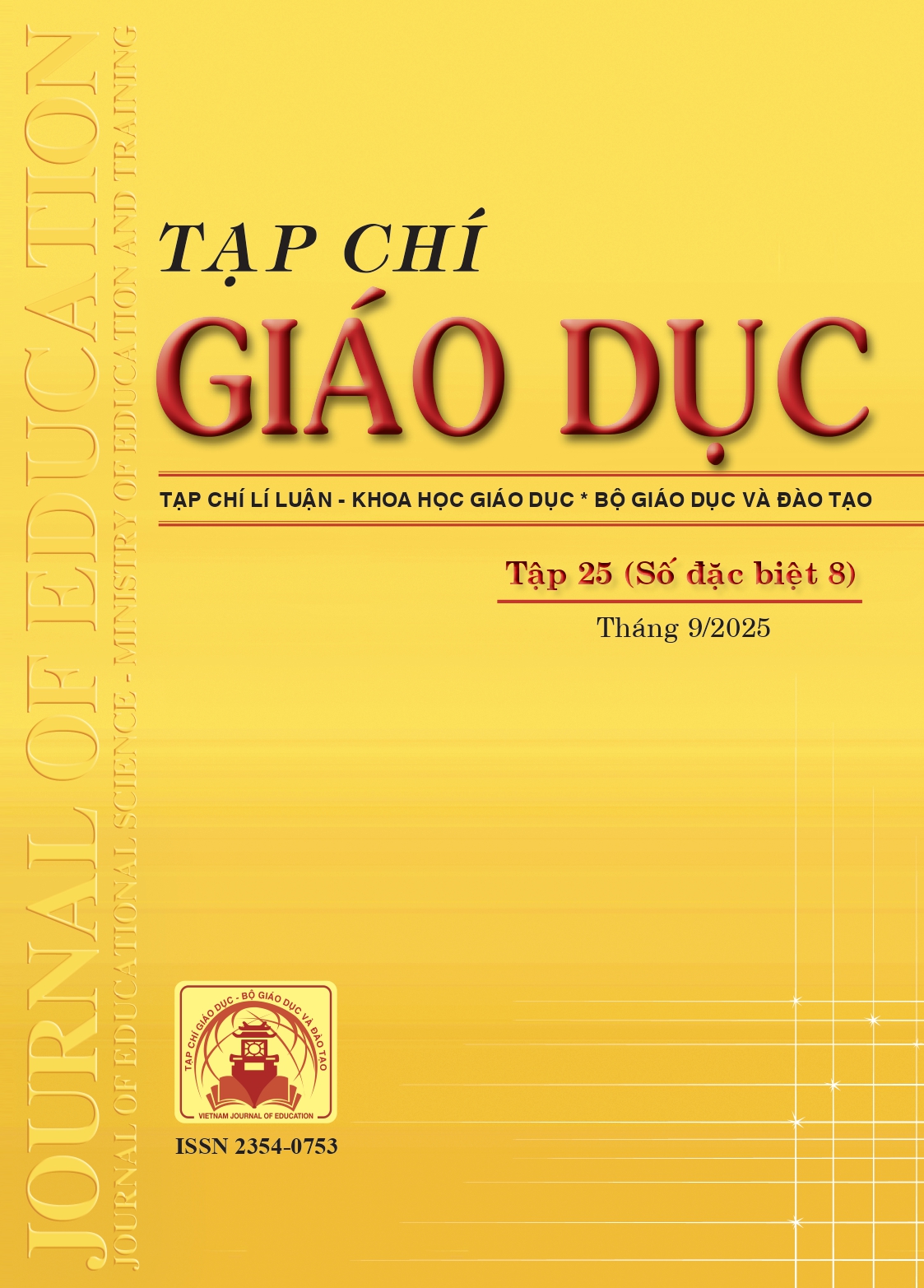Ảnh hưởng của trí tuệ nhân tạo đến kĩ năng viết học thuật bằng tiếng Anh của sinh viên: nghiên cứu tại Trường Đại học Điện Lực
Tóm tắt
Artificial Intelligence has increasingly infiltrated and transformed English language teaching, especially in the area of writing instruction. This paper investigates the influence of Artificial Intelligence tools, particularly ChatGPT, on the English paragraph writing skills of students at a university in Vietnam using the Empower B1 textbook at a university in Vietnam. The research focuses on how AI, particularly through applications integrated into the writing curriculum, influences students’ ability to write coherent, accurate, and logically structured paragraphs. The study employs a mixedmethods approach, combines qualitative and quantitative methods, conducted in parallel, including classroom observation, analysis 100 writing samples, surveys, and group interviews to explore both the benefits and drawbacks of using AI in the writing process. The study shows that AI helps students improve accuracy and coherence, but many become overly dependent on it, using it to generate content instead of building their own skills. It calls for teaching strategies to ensure AI is used supportively without replacing students’ critical thinking and independence.
Tài liệu tham khảo
De La Vall, R. R. F., & Araya, F. G. (2023). Exploring the benefits and challenges of AI-Language learning tools. The International Journal of Social Sciences and Humanities Invention, 10(01), 7569-7576. https://doi.org/10.18535/ijsshi/v10i01.02
Graham, S., & Perin, D. (2007). Writing next: Effective strategies to improve writing of adolescents in middle and high schools - A report to Carnegie Corporation of New York. Alliance for Excellent Education.
Hockly, N. (2023). AI in English language education: friend or foe? English Teaching Professional, 141, 4-7.
Holmes, W., Tuomi, I., Kalz, M., Whitelock, D., & Mason, J. (2022). Ethics and Artificial Intelligence in Education: Promises and Implications for Teaching and Learning. British Journal of Educational Technology, 53(2), 287-305. https://doi.org/10.1111/bjet.13163
Hyland, K. (2019). Second language writing. Cambridge University Press.
Kasneci, E., Sessler, K., Küchemann, S., Bannert, M., Dementieva, D., Fischer, F., & Horz, H. (2023). ChatGPT for Good? On Opportunities and Challenges of Large Language Models for Education. Learning and Individual Differences, 103, 102274. https://doi.org/10.1016/j.lindif.2023.102274
Le, M. T. T., & Tran, K. V. (2024). Vietnamese university students’ perceptions of ChatGPT for homework assistance. International Journal of Interactive Mobile Technologies (iJIM), 18(15), 190-204. https://doi.org/10.3991/ijim.v18i15.48819
Murphy, R. S., Wotley, D., & Minn, D. (2023). Integrating ChatGPT into the EFL Classroom: Benefits and Challenges. 基盤教育センター紀要= Bulletin/Center for Fundamental Education, 40, 97-166.
Nguyễn Hồng Vân (2023). Tác động của công nghệ trí tuệ nhân tạo đến người lao động và khối lượng công việc. Tạp chí Khoa học và Công nghệ Giao thông, 3(2), 28-37. https://doi.org/10.58845/jstt.utt.2023.vn.3.2.28-37
Nguyễn Văn Long (2016). Ứng dụng công nghệ thông tin trong dạy học ngoại ngữ: Từ kinh nghiệm quốc tế đến thực tiễn Việt Nam. Tạp chí Khoa học: Nghiên cứu Giáo dục, Đại học Quốc gia Hà Nội, 32(2), 36-47.
Nguyen, X. H., Le, T. T., Do, D. K., Hoang, Q. N., & Nguyen, T. T. H. (2024). Students’ attitudes toward utilizing AI-based technologies to improve their speaking proficiency. HCMUE Journal of Science, 21(5), 957-970. https://doi.org/10.54607/hcmue.js.21.5.4270(2024)
Norris, C. B. (2016). Academic writing in English. University of Helsinki.
Russell, S. J., & Norvig, P. (2016). Artificial intelligence: A modern approach. Pearson.
Thái Thị Cẩm Trang (2023). Thái độ và kì vọng của sinh viên sư phạm tiếng Anh đối với ChatGPT: Nghiên cứu tại Trường Đại học Sư phạm Hà Nội. Tạp chí Giáo dục, 23(10), 51-56.
Zawacki-Richter, O., Marín, V. I., Bond, M., & Gouverneur, F. (2019). Systematic review of research on artificial intelligence applications in higher education-where are the educators? International Journal of Educational Technology in Higher Education, 16(1), 1-27. https://doi.org/10.1186/s41239-019-0171-0
Zhai, N., & Ma, X. (2023). The effectiveness of automated writing evaluation on writing quality: A meta-analysis. Journal of Educational Computing Research, 61(4), 875-900. https://doi.org/10.1177/07356331221127300
Zou, M., & Huang, L. (2024). The impact of ChatGPT on L2 writing and expected responses: Voice from doctoral students. Education and Information Technologies, 29(11), 13201-13219. https://doi.org/10.1007/s10639-023-12397-x
Đã Xuất bản
Cách trích dẫn
Số
Chuyên mục
Giấy phép

Tác phẩm này được cấp phép theo Ghi nhận tác giả của Creative Commons Giấy phép quốc tế 4.0 .












